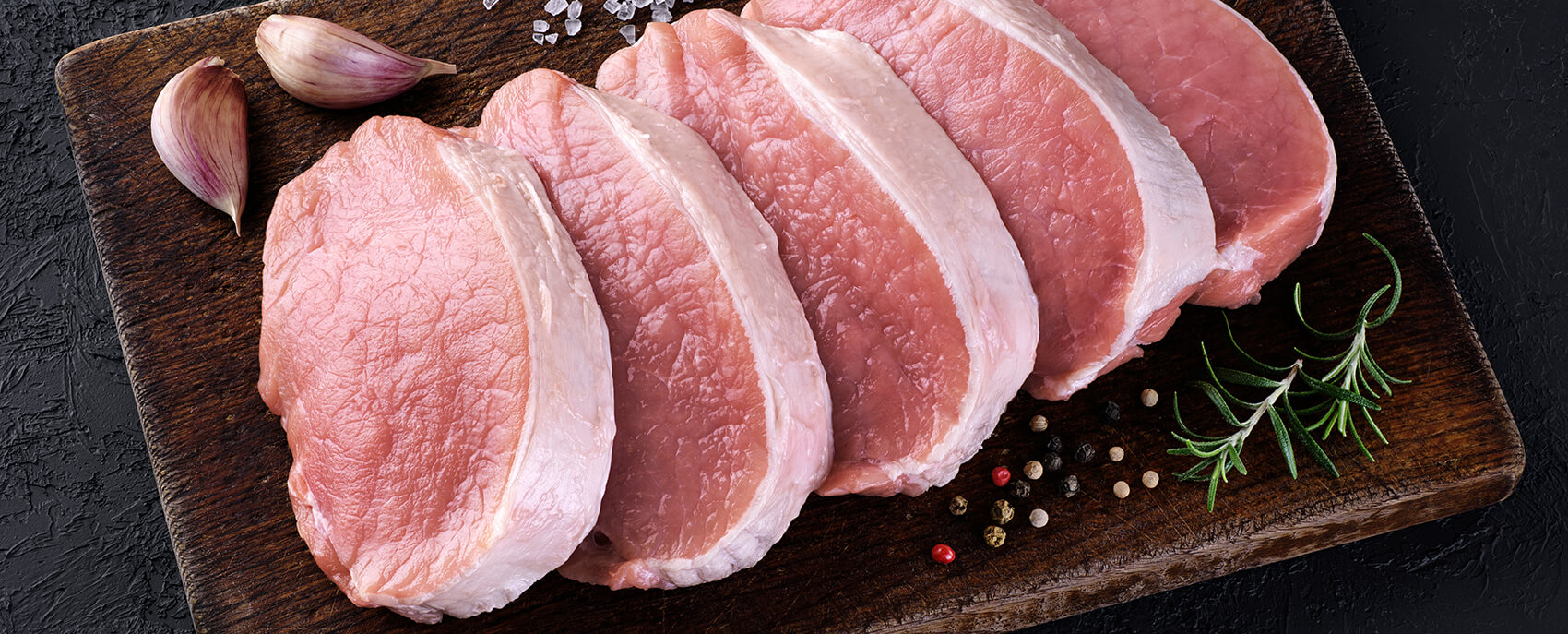How often, while maintaining a balanced diet, can we include pork in our meals? Many sources warn us against consuming it, primarily due to the high content of saturated fats and artificial additives. Pork belongs to the category of red meat, alongside such types as beef, horse, mutton and duck meat. Indeed, the high content of red meat in our diet increases the risk of developing civilization diseases (including cardiovascular and obesity) and the overall risk of death. However, it is worth remembering that scientific research focusing on this topic usually takes into account the entire category of pork, including its processed forms, such as sausages, frankfurters, bacon and cold meat. Indeed, the abovementioned processed meat products are mostly conventional foods. It means that they are not organic farming products. Their composition leaves much to be desired - we should not consume them in excess because of the abundance of carcinogens (produced, among others, during the process of smoking and preserving meat) and harmful saturated fats. What's more, the taste and aroma of processed pork products is often enriched using artificial chemicals that can interfere with the body's proper functioning. The high salt content of processed pork is also noteworthy - it increases the risk of developing cardiovascular diseases.
However, the case is different for unprocessed pork. Good quality unprocessed pork, derived from organic farming, can be safely found in our diet 1-2 times a week (total portion 350-500 g per week). Its nutritional composition is much better compared to processed products. In addition, it is worth choosing lean pork fragments containing definitely less saturated fats and cholesterol. Also, by preparing pork in the right way, we can reduce the amount of fat consumed in meals. A good idea is roasting, cooking or stewing meat with the addition of spices, herbs and organic vegetables. Lean pork can alternatively be replaced with other types of red meat, as well as white meat, for example poultry or veal.
It is worth paying attention to what we buy and where we buy meat products. It is best to choose pork products from native breeds, such as the “zlotnicka pstra” or “pulawska”. Thanks to compliance with the principles of ecological, regional and biodiverse breeding, meat from native breeds is of exceptionally high quality.
Unprocessed pork from organic farming is a good source of macro- and micronutrients important for our body, such as:
- Full-value protein - one of the basic macronutrients that plays an important building role in our body. Protein derived from pork is very well absorbed and contains a full set of amino acids. It is worth noting that leaner pieces of pork (e.g. pork loin) contain a better ratio of proteins to fats compared to the fatter parts (e.g. dewlap).
- Iron - a micronutrient crucial for oxygen transport from the lungs to all cells of our body. The iron contained in animal products, i.e. heme iron, is much better absorbed by our body than the non-haem iron found in plant products.
- Vitamin B1 (thiamine) - ensures the proper functioning of the cardiovascular and nervous system.
- Vitamin B12 - supports the work of the nervous system and stimulates metabolic changes.
- Zinc - important for the proper functioning of the immune, cardiovascular and skeletal systems, supports metabolism.
High quality organic meat products can be found in good butchery and organic stores, as well as bought directly on organic farms. The nutritional value of meat also depends on the part of the carcass from which the product comes. When buying pork products, it's worth choosing lean parts (e.g. pork loin) - it contains less saturated fat and cholesterol, and, when properly prepared, tastes much better!
To sum up: pork can be a very valuable and tasty supplement to our diet, but in order not to provide the body with too much harmful saturated fats, cholesterol and chemical enhancers, attention should be paid to the following aspects:
- Let's choose unprocessed pork products and pay attention to buying lean meat parts - loin, sirloin or shoulder.
- Buying pork from organic farming (preferably from native breeds) is a guarantee of high quality food while taking care for the environment.
- Let's pay attention to how we prepare dishes with pork. Stewing meat instead of frying it can reduce calories up to three times!


